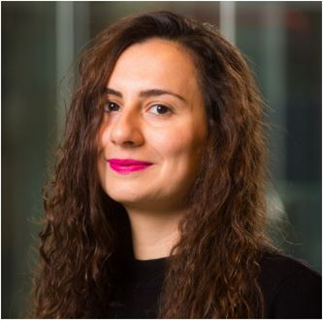Resistive graphene
As a modern material, graphene continues to raise the interest for new, challenging applications. In her PhD thesis, published on 25 February, Seda Kizir describes exploratory research on thin graphene films for the use in Extreme UV photolithography. When used as mask protecting membrane, a so called pellicle, it stops particles from being printed in the chip production process. This application imposes a challenging combination of material properties, which has set the direction of Seda’s research: the aim was to withstand chemically active H-environments while the films are only few tens of nanometer thick and tens of square centimeter large. The thesis summarizes a fundamental study on graphene growth as well as control of defect-induced degradation. It deals with the use of Mo thin films and in-situ transformed Mo2C catalysts, produced using different Mo deposition methods, including a study on the effect of theunderlying oxide on MLG nucleation. A highlight was a new method to improve the chemical resistivity of graphene against the chemically active H radicals. The method involves the selective passivation of the MLG defects using atomic layer deposition (ALD) of a H- resistant material. Essential was that the chemisorption of ALD precursors is taking place at the vulnerable defect sites, which would otherwise be attacked by the H-radicals. This method does not show additional damage of the graphene in Raman measurements, while local treatment nature minimizes EUV transmission losses. The effective etch rate in an H-radical environment has been characterized, with and without ALD passivation process applied and the etching was reduced significantly by using this selective passivation material. The method shows promise for improving the chemical resistivity of other materials with local vulnerable sites, such as carbon nanotubes.
Seda Kizir was a PhD student in the research group XUV Optics, nowadays led by Prof.dr. M.D. Ackermann. She defended her thesis on 25 February 2022 at Twente. Her supervisors were prof.dr.ir. J.P.H. Benschop and prof.dr. F. Bijkerk from the Faculty of Science & Technology (S&T). She is now at ASM in Leuven.






